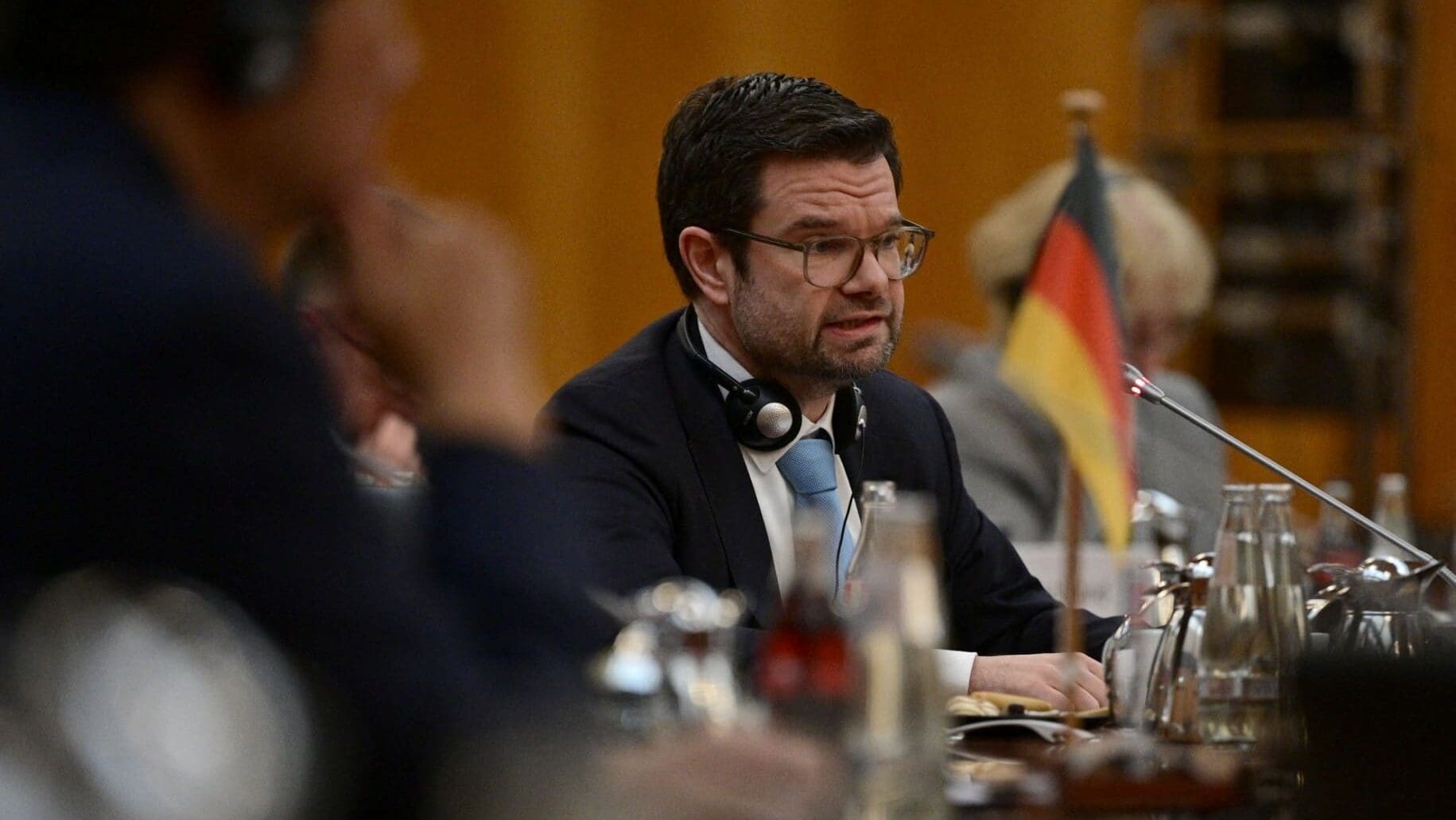
German Justice Minister Marco Buschmann.
Photo: John MacDougall / AFP
In another blow to Germany’s increasingly divided governing coalition, the liberal (FDP) Marco Buschmann-led justice ministry shut down another attempt from his socialist (SPD) colleague, Interior Minister Nancy Faeser, to turn Germany into a police surveillance state.
The Interior Ministry recently submitted a draft “counter-terrorism” law that would allow authorities to secretly conduct searches and place surveillance equipment in people’s homes without their knowledge. The covert searches would be allowed as a part of criminal investigations, without a warrant from the public prosecutor.
According to the text, the law aims to equip the Federal Criminal Police (BKA) with “the authority to covertly enter apartments as an accompanying measure for online searches and source telecommunications surveillance.”
The socialist-led Interior Ministry argued that they would only use the law when absolutely warranted in suspected terror cases. The Greens, the coalition’s second-largest party, came out in support of the draft due to the “serious times” Germany is living through, but stressed that the police should always remain “within the framework of the constitutional order.”
The smallest (and least leftist) coalition partner, the liberal FDP, couldn’t be swayed by empty promises, knowing that once a power has been granted to an agency, it would be naïve to think they wouldn’t use it.
As a holder of the Justice Ministry, the FDP has a significant say in the matter. Buschmann promised to shut down the autocratic proposal on the cabinet level before it could be submitted for a parliamentary vote, lest the center-right opposition CDU team up with the socialists and pass the scheme without the unanimous support of the governing parties.
“There will be no powers to secretly sniff apartments,” the justice minister declared in a pinned post on X. “We don’t do that in a constitutional state.”
Es wird keine Befugnisse zum heimlichen Schnüffeln in Wohnungen geben. Im Staat des Grundgesetzes machen wir so etwas nicht. Das wäre ein absoluter Tabubruch. Als Verfassungsminister lehne ich solche Ideen ab.
— Marco Buschmann (@MarcoBuschmann) August 15, 2024
This is not the first time the lack of unity between the members of Berlin’s ‘traffic light’ coalition was made so painfully apparent—and probably not the last either—with most cracks forming around financial and energy policy issues.
The moderate FDP has been at odds particularly with Faeser due to other attempts by her to increase state surveillance. The FDP also prevented Faeser from radically overhauling the country’s citizenship law—which would have paved the way to naturalizing 2 million illegal migrants—back in 2022.
From the beginning, the government’s way of handling migration has been one of the most contested by FDP politicians, with Chairman Wolfgang Kubicki describing the migration policy designed by his socialist and green colleagues as “an absolute piece from the madhouse.”
Most recently, when the center-right CDU called for reinstating permanent border checks at some of the most problematic areas to counter illegal entries, the FDP came out in support of the proposal, while the SPD and Greens shut it down.
Partly due to the constant infighting, the coalition’s approval rating has plummeted in recent months, with the most recent poll (published on Thursday, August 15th) showing that 62% of Germans are dissatisfied with the government’s work. The majority also identified the discord between the coalition members as one of the main sources of its inaptitude. One in four voters (26%) also believe the government won’t even hold on until the next federal election, due in 2025.
